Many organizations have pursued Big Data as a panacea. For years, there has been an implicit strategy to capture as much data as possible and then figure out what to do with all of it later.
Big Data has swelled beyond the capacity of data-driven marketers to make sense of it all. IBM estimates that 90% of the world’s data today was created in the last two years. Many companies have built large “data lakes” to capture larger and larger data sets without clear use cases in mind.
Gartner officially declared Big Data mainstream by removing it from their Hype Cycle. Yet they predict that in 2017, “60% of big data projects will fail to go beyond piloting and experimentation, and will be abandoned.”
As Big Data matures beyond the hype, organizations are re-evaluating how they approach it. Jascha Kaykas-Wolff, CMO at Mozilla, describes an interesting strategic shift from “Big Data” to “Lean Data”:
“For growth-minded companies, collecting customer data for the sake of collecting data is more risk than the rewards can usually justify. Instead, we should be looking for ways to collect less data and go lean. Why? Because our collection tools create expensive overhead and risks that are impacting the trust of our customers in a negative way…
“For the most part, compiling bigger and more complex sets of customer data will not lead to the big profit and marketshare breakthroughs that Big Data promises. Instead, we marketers must learn to live and think lean. The twin false gods of Big Data and MarTech will continue to encourage thousands of marketers to gather all the data they can wielding an ever-expanding arsenal of tools to sift through it all, with little discussion about whether the mad scramble to vacuum up customer info is worth the trouble, expense, and risk…
“I challenge the assumption that more data is always better. Rather, I say you can have too much of a good thing. And I call that sort of scrape-first think-later behavior lazy marketing.”
Here are a few other cartoons I’ve drawn about Big Data over the years.
“Big Data”, January 2014
“Big Data Analytics”, April 2014
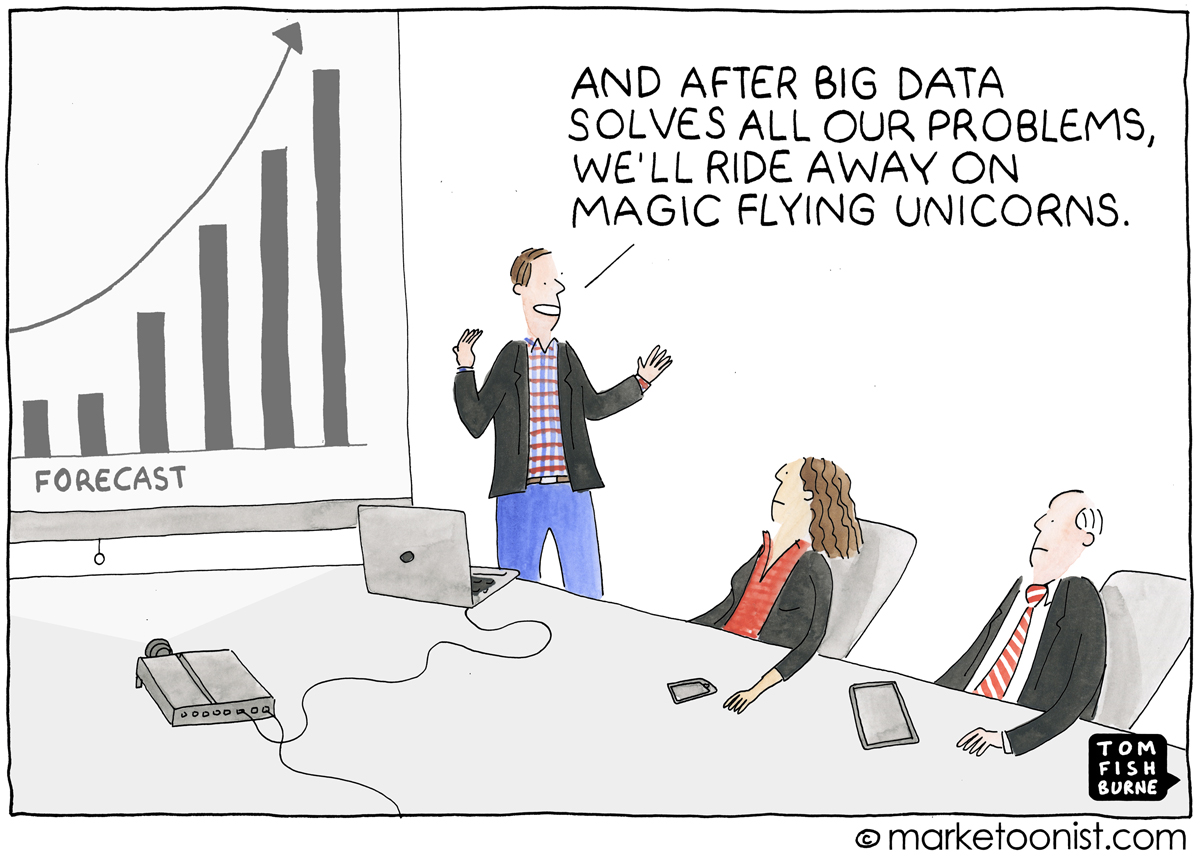
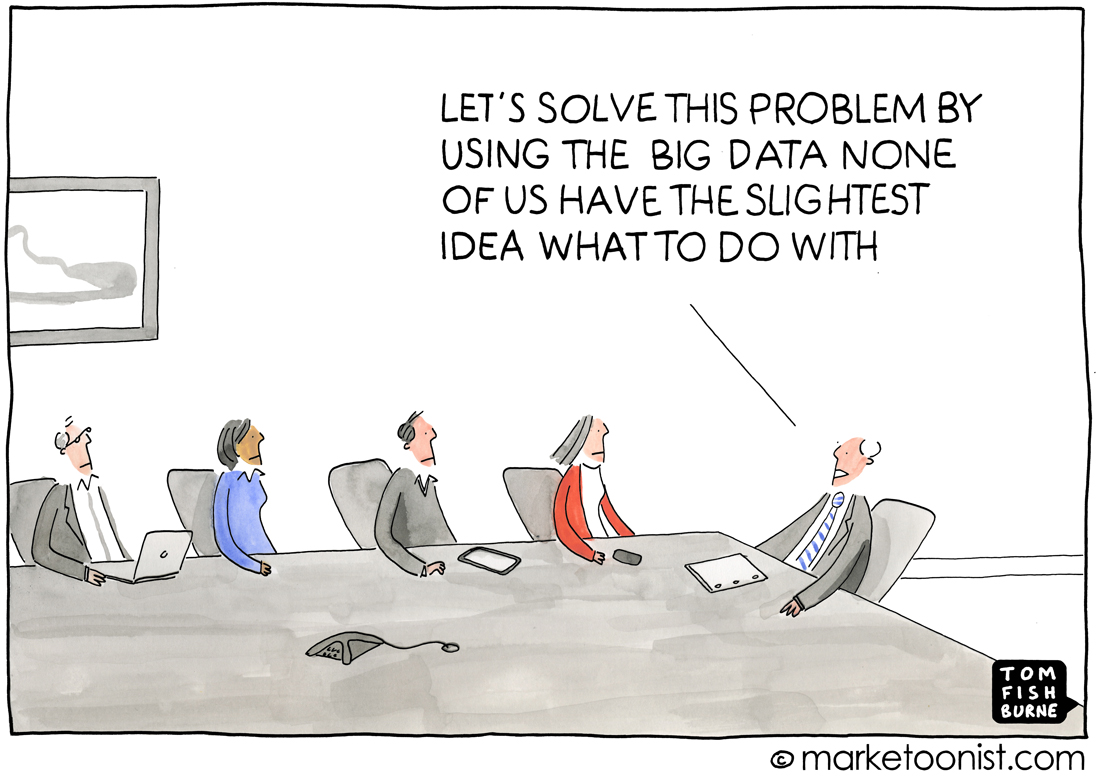
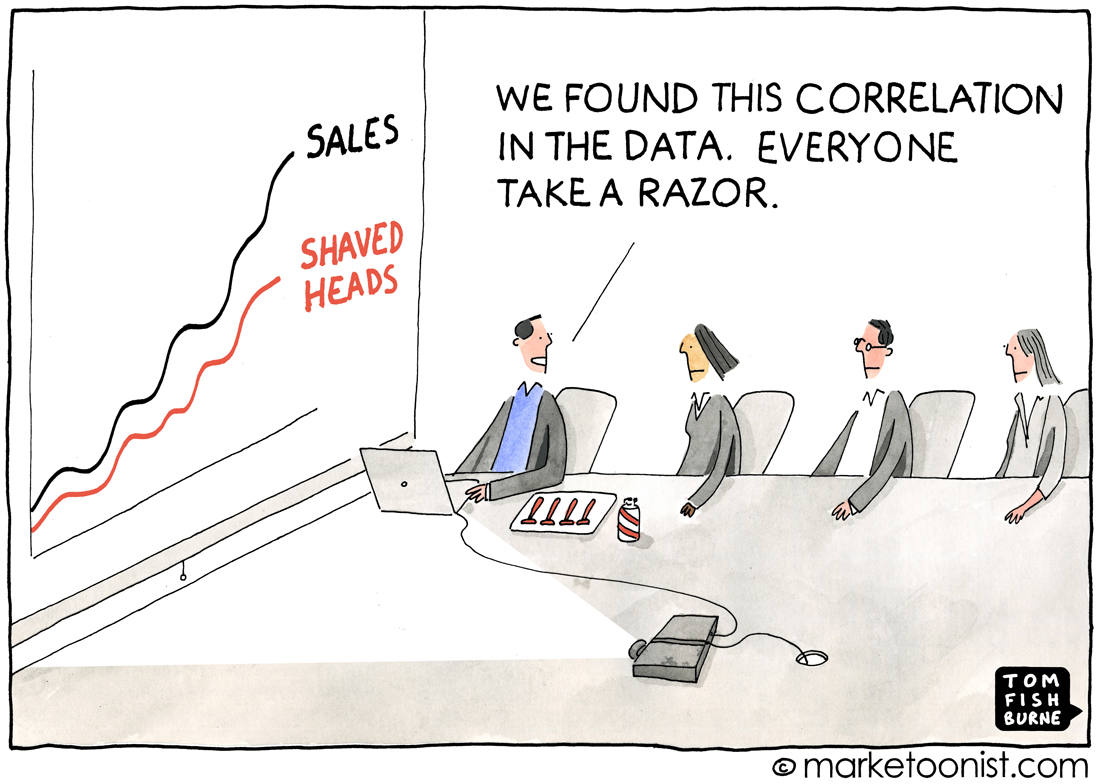
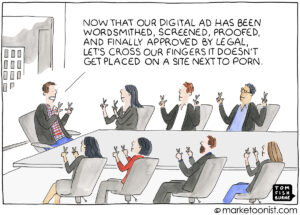
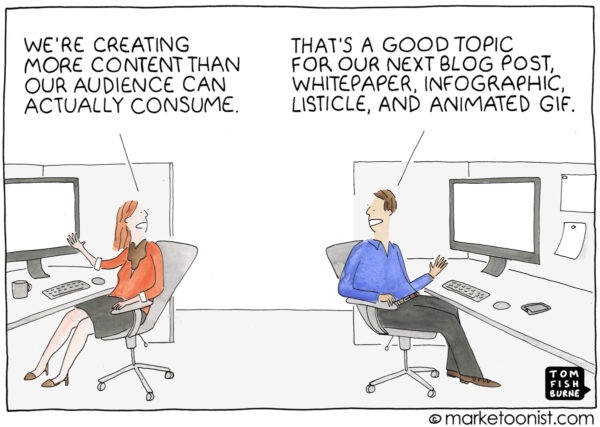
Eileen Bruen says
Love this! As a traditionally groomed marketing researcher, it sometimes feels like Big Data is now expected to solve for all insights. Which isn’t realistic, especially when companies aren’t sure with what to do with all the data .
Tracy Carlson says
Great stuff! The obsession with Big Data is definitely a cop out–lazy marketing, as Kaykas-Wolff suggests. It passes the strategic thinking buck to others. It’s way too easy to say: “Here’s a boatload of dots–please number them, connect them, and get back to me.”
And then there’s the risk. Is there a living soul who hasn’t gotten fed up with post-purchase, post-interaction, etc. surveys, even if they’re just asking for a single NPS rating? Between survey fatigue and growing concerns about privacy we may face a major Big Data reckoning down the road.
Sowmitri Perala says
I really like the view of the author. But all this development, improvement and refinement in the services offered by companies to the consumers was possible mostly because of the data they had. In fact , without the data, the companies would not have known what the consumers needed. This is only a temporary obstacle the companies are facing with huge volumes of data they have at hand. Surely they will come out with a way to understand and use all that data.
In my view companies should focus more on goal specific data collection and should get rid of the useless data as it becomes obsolete anyway. This might prevent the accumulation of data in future.